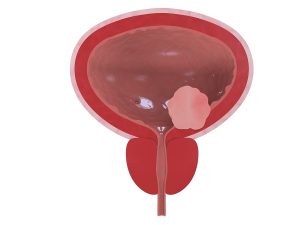Total Knee Replacement
Background
Similar to hip replacement, knee replacement is done when a person is experiencing decreased range of motion, trouble walking or climbing stairs, and increased degeneration of the joint so as to impair quality of life. This most often occurs as a result of arthritis.
Treatment
Total knee replacement (TKR) surgery involves resurfacing or removing the distal portion of the femur that articulates with the end of the shin bone. The prosthesis consists of metal and plastic or similar materials that are cemented onto the newly resurfaced areas of the articulating bones. Although often done under general anesthetic, this surgery can also be performed under spinal anesthesia. Sometimes blood loss is significant, so patients may be asked to donate their own blood ahead of time to be given back to them in the event it is needed. In addition, a growing trend is toward bilateral knee replacement in those persons requiring both knees to be surgically repaired. The benefits of this are the one-time operative anesthetic and room costs, and many physicians feel recovery from bilateral replacement is similar to single replacement. However, the pain and lack of mobility, as well as the significant increase in the assistance needed after surgery when a bilateral replacement is done, may make this less than ideal for older patients. Surgical procedures for TKR have not evolved quite as rapidly as total hip arthroplasty.
Discomfort after knee surgery is generally severe in the first few days. Complications after surgery may occur, including pain, infection, and blood clots. Patients may use cold packs on the operative area and take pain and sleeping medications as ordered. In addition, alternative therapies such as guided imagery have been shown to help with pain management (Posadzi & Ernst, 2011). Many joint replacement patients feel a loss of control and independence.
Therapy will begin immediately in the acute care hospital. Although weight bearing does not usually occur until 24 hours after surgery, sitting in a chair and using a continuous passive motion machine (CPM) (if ordered), will ease recovery. The use of a CPM is generally based on the surgeon’s preference. There is research to support it, as well as studies indicating that walking soon after surgery has an equal effect and makes the CPM unnecessary. However, in cases of an older person who may not have the mobility skills initially after surgery that a younger person would, a CPM may be beneficial to keep the joint flexible and decrease pain.
Dr. Zann (2005) indicated that “patients undergoing total knee replacement do not achieve their maximum improvement until 2–4 years” (p. 1). This is attributed to the lack of muscular structures that surround and protect the knee and the need for the ligaments and tendons to adapt to the indwelling prosthesis. Recovery times vary and depend upon a number of variables, including the patient’s overall health, age, other preexisting health issues, and motivation. Patients report that the new knee joint never feels normal even years after the surgery, but that they experience an increase in function and generally much less pain than before.
Patients should be educated about signs and symptoms of infection, care of the surgical site (if staples are still present), pain management, and expectations for recovery. A range of motion from 0–90 degrees is the very minimum needed for normal functioning. Normal knee flexion is 140 degrees, but few older persons would get this amount of flexion after surgery, and may not have had full flexion even prior to the operation. After discharge, a walker is usually used in the first few weeks, followed by light activities 6 weeks after surgery. In addition, the patient’s spouse may experience feelings of being overwhelmed due to role transitions that occur after surgery and during the recovery period (Walker, 2012 ). Newer knee prosthetics are still going strong for the majority of patients 15 years after surgery.




